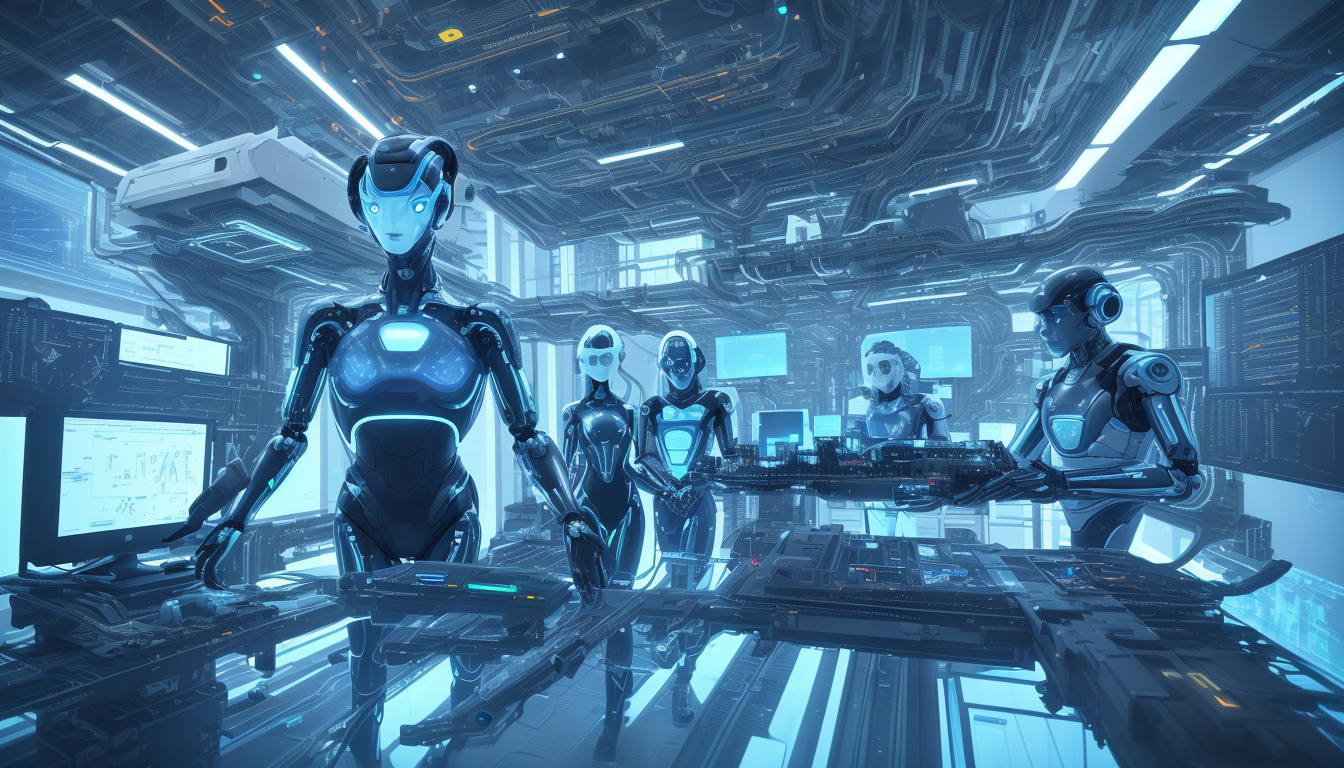AI Revolutionizing Engineering Careers: Insights from ServiceNow’s CTO
In an era where artificial intelligence (AI) is transforming industries, ServiceNow’s Chief Technology Officer, Pat Casey, recently shared insights on the impact of AI on engineering careers in an exclusive interview with Business Insider. Casey emphasized that AI is redefining the engineering landscape, particularly by automating tasks that were traditionally handled by junior engineers.
AI’s Role in Engineering Automation
According to Casey, AI tools are now capable of automating many low-level coding tasks — such as writing boilerplate code and fixing bugs — which were once the responsibilities of entry-level engineers. This shift represents a significant change in the engineering pipeline, leading to a "pinch point" that could complicate career progression for aspiring engineers.
With advancements in AI technology, the reliance on junior engineers for mundane coding tasks has decreased. “It’s not just about having many junior engineers anymore,” Casey noted. “As AI improves, we can accomplish more with fewer people.”
The Need for Top Engineers
The evolution of engineering roles has raised critical questions about how organizations will cultivate talent in a changing job market. Despite the growing use of AI, Casey asserted that there will always be a demand for top-tier engineers, particularly those capable of mastering the latest AI-driven coding tools.
"We’re going to need engineers at the top end," Casey said, emphasizing the importance of engineers who can effectively leverage these new technologies. He encourages engineers to understand and utilize AI tools to enhance their productivity and drive more complex projects.
Distinguishing Between Types of Engineers
Casey highlighted that senior engineers can be broadly categorized into two distinct groups: horizontal generalists and focused specialists. Horizontal generalists possess the ability to address strategic challenges across an organization. For instance, during potential acquisitions, these engineers engage directly with codebases to guide discussions and decisions.
Conversely, focused specialists excel in solving highly specific and crucial problems. “They are often deeply engrossed in their work, able to write significant lines of code rapidly, while others may struggle to produce similar outcomes,” Casey explained.
This differentiation of roles is vital as organizations adapt to an engineering environment increasingly steeped in AI capabilities.
The Shifting Dynamics of Software Engineering
The integration of AI into software engineering practices is not just about automating tasks, but rather about fostering a new collaborative relationship between humans and machines. As noted by other industry leaders, the future of engineering is rapidly shifting towards a culture driven by experimentation and innovation.
For example, Varun Mohan, the CEO of Windsurf, mentioned that freeing developers from repetitive tasks allows them to focus on experimenting with new ideas. This research-driven approach can significantly enhance product development and user experience.
However, there are also warnings from established figures in the tech industry about the implications of AI on job markets. OpenAI’s Sam Altman has indicated that the demand for software engineers may diminish as AI capability grows, suggesting a future where fewer engineers may be needed due to increased productivity.
The Importance of Interpersonal Skills
In light of these changes, other tech leaders, including Salesforce’s Chief Futures Officer, Peter Schwartz, have highlighted the importance of empathy and teamwork. “The most important skill is empathy, working with other people,” Schwartz stated, reflecting the evolving skill set required in an AI-dominated engineering environment.
Conclusion
As AI continues to reshape the engineering landscape, professionals in the field must adapt by developing new skills and embracing the collaborative nature of human-machine partnerships. Understanding how to leverage AI tools will be paramount for engineers seeking to carve out successful careers in an increasingly automated world. The insights from ServiceNow’s Pat Casey serve as a clarion call for engineers to evolve alongside technology and redefine their roles in the workplace.










